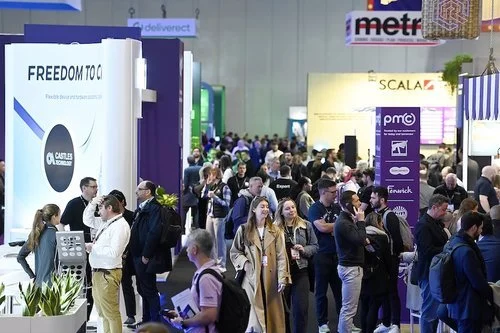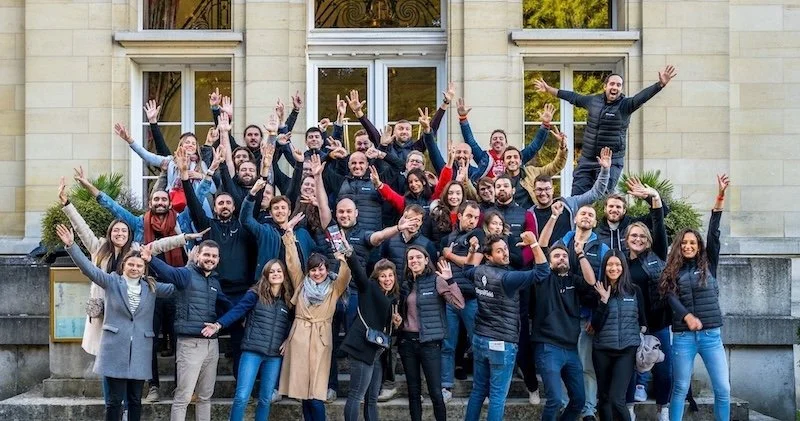More guests, less chaos: the future of table booking in the hospitality industry
The restaurant industry is constantly evolving, and as customer expectations rise, the demand for efficient and seamless table booking solutions grows.
Traditional methods of handling reservations - pen and paper, phone calls, and manually managed spreadsheets - often result in inefficiencies, overbooking, and lost revenue. In an era where speed and convenience are key, restaurants must embrace technological advancements to optimise their reservation management systems.
Empowering restaurants with tech driven reservation management solutions is no longer a luxury but a necessity. These tools enable restaurants to maximise occupancy, streamline operations, and provide customers with a frictionless dining experience. By integrating smart systems, restaurants can reduce human errors, minimize no-shows, and ensure that every seat is used efficiently.
The Evolution of Table Booking: From Paper to Digital
For decades, restaurant reservations were handled through simple notebooks or Excel sheets, relying on staff to manually track bookings, cancellations, and walk-ins. While this approach worked for small venues, it became increasingly unsustainable for high-volume restaurants, especially during peak dining hours. Double bookings, lost reservations, and inefficient table turnover were common issues.
The shift to digital reservation systems marked a turning point in restaurant management. These platforms introduced automation, allowing restaurants to sync reservations across multiple platforms, manage guest preferences, and integrate with other systems such as Point of Sale (PoS) and customer relationship management (CRM) tools. Restaurants using such solutions have reported increased revenue, improved guest experiences, and smoother operational workflows.
"Efficiency in restaurant management isn't just about saving time—it’s about creating seamless guest experiences that drive long-term success."
A modern digital reservation system does more than just book tables. It enables restaurants to anticipate peak times, reduce waiting periods, and offer a personalised touch by remembering guest preferences. This level of operational intelligence helps establishments optimise their capacity and ensures that customers leave with a positive impression, increasing the likelihood of repeat visits.
Key Features of Modern Reservation Systems
The best digital reservation management systems offer an array of features that simplify restaurant operations. These solutions are designed to handle reservations efficiently while improving guest satisfaction. Some of the key features include:
● Real-Time Table Availability: Allows guests to book instantly and eliminates the risk of overbooking.
● Automated Reservation Confirmations & Reminders: Reduces no-shows and last-minute cancellations by keeping customers informed.
● Integration with PoS & CRM Systems: Syncs reservation data with other restaurant functions to enhance service efficiency.
● Online Waitlists & Queue Management: Enables guests to join waitlists remotely, reducing congestion at the restaurant entrance.
● Data & Analytics: Provides insights into booking trends, peak hours, and customer preferences for better decision-making.
With these features in place, restaurants can optimise table turnover, reduce downtime, and maximize revenue. Technology allows businesses to understand their customers better, providing them with a tailored experience that enhances brand loyalty.
Restaurant Reservation Management Technology: A Game-Changer for the Industry
The restaurant industry has always been competitive, with margins often razor-thin. To stay ahead, businesses must leverage modern solutions that enhance efficiency while minimising operational challenges. The adoption of restaurant reservation management technology has been a game-changer, enabling restaurants to scale their operations while maintaining high service standards.
Unlike traditional systems, technology-driven reservation platforms empower restaurants with:
● Advanced Table Optimisation: Ensuring maximum seat occupancy and eliminating empty tables during peak hours.
● Seamless Multi-Channel Bookings: Accepting reservations from websites, social media, and third-party platforms in a centralized system.
● Customizable Seating Plans: Allowing flexibility in table arrangements to accommodate groups, special events, or VIP guests.
By embracing these innovations, restaurants not only enhance their efficiency but also improve customer satisfaction. Digital solutions make it easier to handle last minute changes, track guest preferences, and manage special requests - all of which contribute to a seamless dining experience.
Benefits of Tech Driven Reservation Management
Adopting a digital reservation system provides numerous benefits for restaurants of all sizes. These advantages extend beyond simple table management and contribute to overall operational efficiency, customer satisfaction, and revenue growth.
One of the most significant benefits is enhanced guest experience. With real-time availability, guests can book their tables online at their convenience, avoiding the frustration of long waits or unavailable seating. Automated reminders ensure they don’t forget their reservation, reducing last minute no shows and improving planning for restaurant staff.
Moreover, optimised table turnover helps restaurants make the most out of their available seating. With a well-integrated system, staff can track table status, predict when tables will be free, and seat guests efficiently. This reduces idle time and ensures a steady flow of diners, maximising revenue while keeping customers satisfied.
Another key advantage is better customer data collection. Modern reservation platforms can store guest preferences, past visits, and special requests. This allows restaurants to personalise their service, offering tailored recommendations or remembering dietary restrictions, which enhances loyalty and repeat business.
Additional benefits of using tech driven reservation solutions include:
● Reduced administrative workload: Staff spend less time answering calls and managing bookings manually.
● Improved accuracy: Eliminates human errors such as double bookings or misplaced reservations.
● Higher operational efficiency: Staff can focus on customer service instead of juggling reservation management.
● Revenue optimisation: Data analytics provide insights into peak hours and booking patterns to maximize earnings.
Restaurants that integrate digital reservation systems can see a significant increase in operational efficiency, customer satisfaction, and overall profitability. By automating routine tasks, managers and staff have more time to focus on delivering excellent dining experiences.
The Future of Restaurant Reservations: Trends to Watch
Technology is rapidly advancing, and reservation management systems continue to evolve. As artificial intelligence and automation play a greater role in hospitality, restaurants must stay ahead of trends to remain competitive.
One of the most exciting developments is the use of AI powered chatbots and virtual assistants. These tools can handle customer inquiries, suggest available time slots, and even process bookings without human intervention. This not only reduces the workload for restaurant staff but also ensures a faster and more efficient customer experience.
Additionally, machine learning and predictive analytics are transforming how restaurants manage reservations. By analysing historical data, these systems can predict peak hours, suggest optimal table arrangements, and even forecast demand based on weather, holidays, or local events. This helps restaurants prepare better and reduce last-minute disruptions.
Another emerging trend is seamless integration with smart devices. Guests can make reservations through voice assistants like Alexa or Google Assistant, further simplifying the booking process. Mobile app integration also allows restaurants to send real-time updates, notify guests when their table is ready, and even offer personalised promotions based on dining history.
To summarise, future reservation management solutions will likely include:
● AI driven automation: Reducing manual tasks and optimising table assignments.
● Predictive analytics: Helping restaurants make data driven decisions.
● Voice-activated bookings: Enhancing convenience for tech-savvy diners.
● Mobile-first approach: Providing seamless guest interaction through apps and notifications.
As restaurants embrace these innovations, they will be better equipped to meet customer expectations while maintaining operational efficiency.
Embracing Technology for Long-Term Success
The restaurant industry is undergoing a significant transformation, and businesses that fail to adapt risk falling behind. The days of managing reservations with pen and paper or outdated spreadsheets are fading, making way for intelligent, tech driven solutions that simplify operations and enhance guest experiences.
By integrating digital reservation management platforms, restaurants can increase efficiency, reduce human error, and optimise table utilisation. More importantly, these systems offer valuable data insights that help businesses make informed decisions, predict demand, and tailor experiences to customer preferences. In an increasingly competitive market, providing seamless and efficient service is no longer optional - it is a necessity.
The future of restaurant reservations lies in automation, AI driven analytics, and mobile first solutions. Restaurants that embrace these innovations will not only streamline their operations but also cultivate long-term customer relationships. The goal is simple: more guests, less chaos, and a dining experience that keeps customers coming back.































Continue reading…